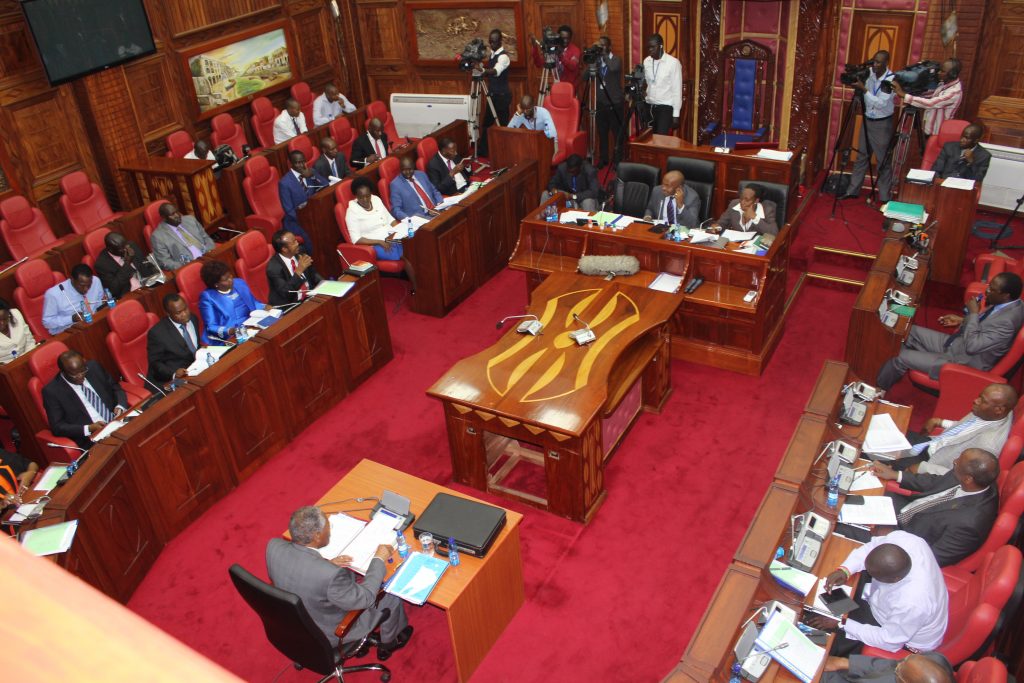Senate team shocked at Rabai’s Sh7.4b earnings
By Rawlings, April 5, 2023Senate committee probing the high cost of electricity was shocked to learn that Rabai Power, one of Kenya’s major Independent Power Producers (IPP), is reaping huge profits to the tune of Sh7.36 billion annually for producing only 90 megawatts of power. The Senate Energy Committee chaired by Nyeri lawmaker Wahome Wamatinga took the officials of Rabai to task why they are producing little power but reaping huge profits.
This is after Rabai Power General manager Zablon Okwoku revealed that his facility had signed a contract with Kenya Power to generate power for 20 years with the contract ending in 2030. Okwoku noted that the power plant is powered by Heavy Fuel Oils (HFO), which is the component significantly spiking the cost of electricity paid by consumers.
“The component taking the bulk of unit cost of kilowatt power is the fuel component. It is beyond the control of the generator. The cost takes into consideration the landing costs. The taxes take almost 45 per cent of the operations cost,” he said.
Rabai Power plant officials were taken to task on whether they can reduce the cost of power generated for the sake of suffering Kenyans but they referred to the high taxes and high cost of fuel.
Terms of costing
“The charges for electricity in this country are very exorbitant. Can you convince us that you are fair in terms of costing as per agreement?” Danson Mungatana, Tana River Senator. Majority Whip Boni Khalwale (Kakamega) wondered why Rabai Power that enjoys 30 per cent of the market share and the annual figures at Sh7.36 billion are not willing to offer any remedy to the high cost of power.
“In view of the high cost of power generated. If it is not profiteering, what mitigation measures have you put in place to reduce carbon emission and do you intend to exploit emerging producing power that uses renewable energy?” he posed.
But Okwoku maintained that lowering the cost of production of power will only be dependent on lowering of fuel charge and other taxes by the government.
“The biggest component of the cost is the fuel charge. This is beyond the generator. The taxes alone consume up to 45 per cent of cost,” he said.
He noted that the contract between Rabai Power and Kenya Power will end in 2030, adding that once the term expires, the investors will then seek for extension or termination. “Our work was in constructing, testing and commissioning the facility. This is a property of KPLC. KPLC is paying for the facility by repaying the loan. Once the term expires, we shall transfer the facility to KPLC,” he said. He went on: “Among the thermal power plants in the country, Rabai is the most efficient, reliable, thermal plant in the country and is cheaper than most KenGen Thermal power plants.”
According to Okwoku, the Rabai power plant runs on five engines on HFO, adding that they can generate some steam from five boilers up to about 6.5MW which he claimed now make them end up using less fuel and producing more.
Local investor
Asked whether the shareholders have any local investors, Okwoku said that the company shareholding included investments from Denmark, Japan, France and Germany. “Hon Chairman it is very difficult to know if there is any connection with any local investor. This is because when you check you find that the investor is from Denmark, Japan, France and Germany. If you go further, you find that the name of the company that made the investment is listed in the stock exchange of those countries,” Okwoku charged.
William Kisang (Elgeyo Marakwet) asked why fuel charges are paid in dollars and capacity charge is paid in Euros.
More Articles

